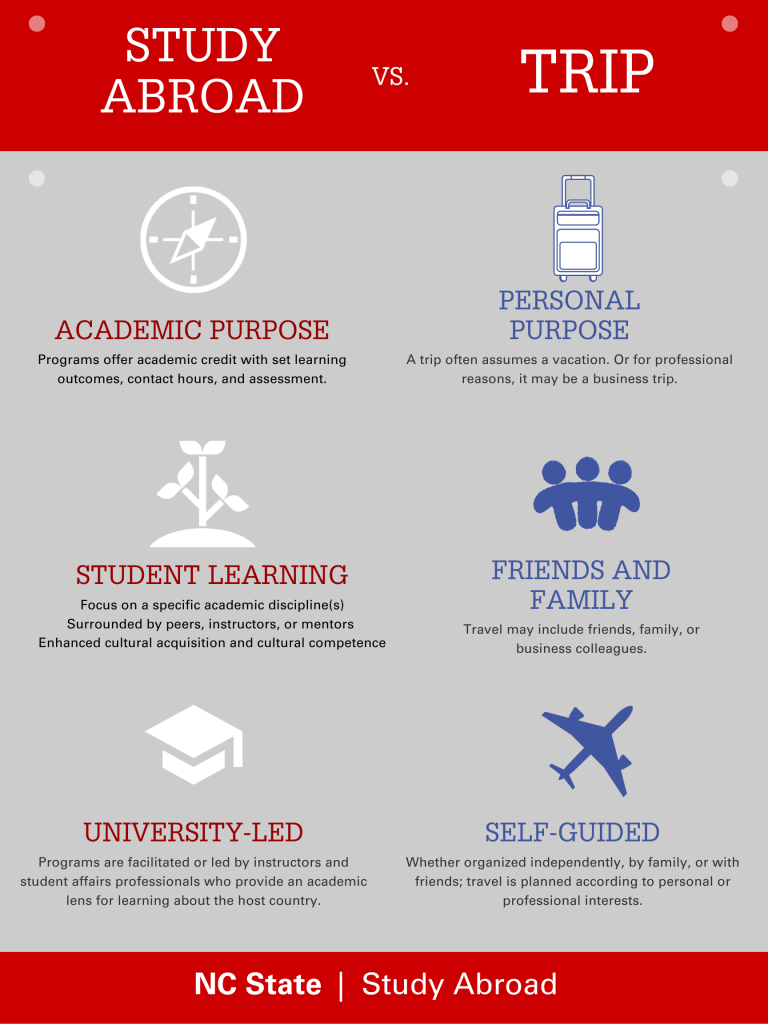Words Matter: Study Abroad, More Than A Trip
Julia Law
Kory Saunders
There is some common terminology that we hear from our students, campus colleagues, and the larger community that we’ve been meaning to address. It’s the word “trip.” Study abroad is an academic endeavor that takes significant time, effort, and leadership. For anyone who’s been involved in developing or running a program, it is not a vacation. It is hard work and a commitment! Together, we are creating academic programs that enhance the curriculum and are strategically woven into student’s degree programs. We are supporting students pre, during, and post their in-country experience. Additionally, we are mitigating risk and responding to emergencies, budgeting, and organizing logistics to name a few. Let us not diminish the outlined goals of a study abroad experience by referring to the experience as a “trip.”
How we describe the larger experience also helps to set expectations for participants, our students. Using words such as “trip” can devalue the study abroad experience, especially when speaking to others who do not understand the benefits. Academics are at the core of the programs that have identified learning outcomes. Participants will be assessed based on the course material being taught, which will require academic efforts on their part. We are not backpacking, we are not leading a group of children, on-site staff are not acting chaperones, and no one is taking the role of “momma bear.” Obviously, we hope the learning will be engaging and that students have a great experience! We hope that program personnel and participants might form a mentor/mentee relationship. We would also be remiss to assume vacations or trips can not provide learning opportunities, they certainly can. However, we strive to set the bar higher for our study abroad programs so that students are challenged and can grow personally, academically, and professionally.
